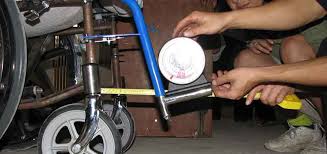Introduction
In this comprehensive guide, we delve into the essential details of EN 16121:2013 standards for non-domestic furniture. As a leading authority in the furniture industry, we understand the significance of adhering to international standards for ensuring product safety, quality, and performance. The EN 16121:2013 standard specifically addresses the requirements and test methods for non-domestic tables, chairs, and storage units, encompassing a wide range of products used in commercial and public spaces. Let’s explore the intricacies of this standard to ensure that your business remains compliant, competitive, and committed to excellence.
Overview of EN 16121:2013
Defining Non-Domestic Furniture
EN 16121:2013 focuses on non-domestic furniture, which encompasses various types of furniture used in settings beyond residential environments. This includes furniture designed for offices, schools, hospitals, restaurants, hotels, and other commercial and public spaces. The standard recognizes the unique requirements of these settings and aims to establish guidelines that ensure durability, safety, and ergonomics for all users.
Scope and Application
The standard covers a wide array of furniture, including but not limited to:
- Tables: Conference tables, dining tables, worktables, and more.
- Chairs: Office chairs, restaurant chairs, seating for public spaces, and others.
- Storage Units: Cabinets, shelves, lockers, and more.
It is essential to note that EN 16121:2013 sets minimum requirements and does not encompass bespoke or custom-made furniture.
Key Requirements of EN 16121:2013
Structural Integrity and Stability
One of the fundamental aspects of this standard is ensuring that non-domestic furniture is structurally sound and stable. Manufacturers must conduct tests to determine the maximum load capacity and evaluate the furniture’s stability to prevent tipping or toppling over during regular use.
Durability and Wear Resistance
Non-domestic furniture experiences high levels of daily use, necessitating enhanced durability and wear resistance. The standard mandates specific tests to assess the furniture’s ability to withstand regular wear and tear, ensuring it remains in optimal condition for an extended period.
Safety and Ergonomics
Safety is of paramount importance, especially in public spaces where the risk of accidents may be higher. EN 16121:2013 addresses ergonomic considerations, such as correct seat height, backrest angle, and dimensions, to promote user comfort and reduce the likelihood of musculoskeletal issues.
Fire Safety
Commercial and public spaces must adhere to stringent fire safety regulations. The standard incorporates tests to evaluate the furniture’s resistance to ignition and flame spread, ensuring that it does not pose a fire hazard.
Chemical and Material Requirements
EN 16121:2013 also includes restrictions on certain hazardous substances commonly used in furniture manufacturing. Compliance with these restrictions ensures that the furniture is free from harmful chemicals, promoting a safe and healthy environment for users.
Environmental Considerations
Sustainability is a growing concern across industries, including furniture manufacturing. This standard encourages the use of eco-friendly materials and processes, reducing the environmental impact of non-domestic furniture.
Benefits of Complying with EN 16121:2013
Enhanced Credibility
Adhering to EN 16121:2013 demonstrates your commitment to product quality and safety. It boosts your brand’s credibility and fosters trust among customers and stakeholders, giving you a competitive edge in the market.
Expanded Market Access
Many countries and regions require compliance with international standards for non-domestic furniture. By meeting the requirements of EN 16121:2013, you gain access to global markets, enabling business expansion and growth.
Customer Satisfaction
Furniture that complies with EN 16121:2013 offers superior comfort, safety, and durability, leading to higher customer satisfaction. Satisfied customers are more likely to become repeat buyers and brand advocates, driving positive word-of-mouth promotion.
Risk Mitigation
Non-compliance with industry standards can lead to costly legal issues and damage your reputation. By following EN 16121:2013, you mitigate the risk of product recalls, lawsuits, and negative publicity, safeguarding your business interests.
Conclusion
In conclusion, understanding and adhering to EN 16121:2013 standards for non-domestic furniture is crucial for furniture manufacturers, suppliers, and businesses operating in commercial and public spaces. Compliance with this comprehensive standard ensures that your furniture products are safe, durable, and environmentally responsible, contributing to your business’s success and reputation.








